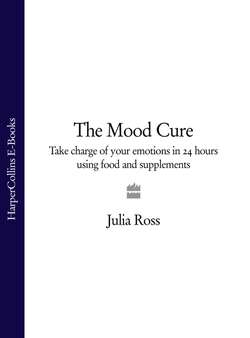Читать книгу The Mood Cure: Take Charge of Your Emotions in 24 Hours Using Food and Supplements - Julia Ross - Страница 70
Are You Feeding Your Cats Well?
ОглавлениеMost people who suffer from mood problems are not eating well, and cat-deficient people are no exception. Low-cal or high-carb diets cause cat depletion because they’re low in protein, and protein malnutrition is a leading cause of the blahs. If you don’t eat high-protein foods like eggs, salmon, and cottage cheese, you may be stripping your brain of the key amino acids that it needs to make your cats. The more sweet or starchy carbs you eat, the less of these antidepressant aminos arrive in your brain, even if you are eating protein, because carbs cause the insulin release that tends to sweep these aminos out of your bloodstream, into your muscles, and out of reach of your brain.
Protein-rich animal-derived foods are very high in the crucial amino acid tyrosine, but vegetable protein is not. For example, there are about 840 milligrams of tyrosine in three scrambled eggs, 400 milligrams in a quarter-pound hamburger patty, and 900 milligrams in a chicken breast, but you’d have to eat twenty-four almonds to get a scant 150 milligrams of tyrosine. If you are vegetarian, by the typically low-protein nature of your diet, you run the risk of cat deficiency. If you eat a lot of soy-based foods, you also run the risk of low cat levels because soy tends to inhibit the conversion of tyrosine into the cats.11
Within two weeks of the start of a low-calorie diet, the cat-feeding amino acid supply can drop so low that cat levels can be cut in half.12 The amino acids used to make cats are also needed for many other crucial body functions. They’re constantly in demand for muscle repair, for example. Only 2 percent of these precious aminos get to the brain under the best of circumstances, and when you’re dieting, even less is made available. The depletion of other nutrients by too much dieting, skipped meals, or fast food, notably the depletion of B vitamins, vitamin C, calcium, magnesium, and vitamin D, can also contribute to the problem. Like protein, all are key players in both depression relief and stress reduction and are critical to adequate cat function.
